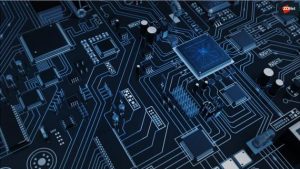In September, Nvidia announced it had closed a deal to acquire Arm Limited from SoftBank for $40 billion. The deal brought together Nvidia’s AI computing platform with Arm’s ability to accelerate innovation and to create a new age of artificial intelligence.
Now Amazon Web Services (AWS) and Apple are looking to leverage Arm’s chip power.
ARM, previously known as Advanced RISC Machine, is a family of RISC (reduced instruction set computing) architectures for computer processors, configured for various environments. ARM processors were developed in the ‘80s and combine high-performance RISC designs with lower manufacturing costs and reduced power consumption.
This makes ARM processors ideal for portable devices like smartphones, tablets, and laptops. More and more companies are designing processors that implement ARM technology, including Apple, AWS, AppliedMicro, Broadcom, Qualcomm, and Samsung Electronics.
This year, Apple brought ARM chips into the desktop world with tailored extensions like a built-in security enclave, a motion coprocessor, and a neural engine. Now, it is reported that Apple is set to host an ARM Mac event in November, where it is rumored to launch its ARM-powered Macs, replacing Intel processors.
Like x86 processors from Intel or AMD, ARM designs are usually associated with mobile devices because of their greater power efficiency, giving products like the iPad long battery life without the need for active cooling. By switching to ARM-based chipsets from Intel processors, Apple could save as much as 40–60%, according to reports.
AWS is also embracing ARM technology, leading to new services that will benefit developers and end-users. Earlier this year, AWS announced the general availability of its sixth generation of Amazon Elastic Compute Cloud (Amazon EC2). Powered by AWS-designed, ARM-based Graviton2 processors, they deliver up to 40% better price and performance compared to current-generation x86-based processors.
AWS is promoting the Graviton 2 CPU as an alternative to Xeon servers from Intel. Under the company’s plan to enhance ARM CPUs with its own AI technology, it could also compete with Nvidia. The goal is to shift the data-center market from one based on standard Intel servers to one based on AI and cloud-computing technologies.
Arm is edging ever closer to x86 performance and moving up the ladder where they are competitive while maintaining their lead in power-efficiency, securing their core markets.
























